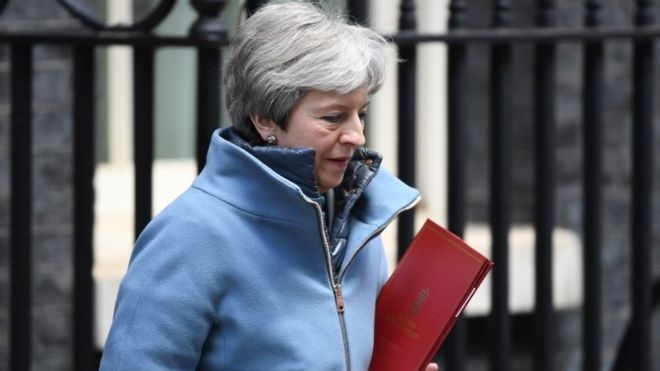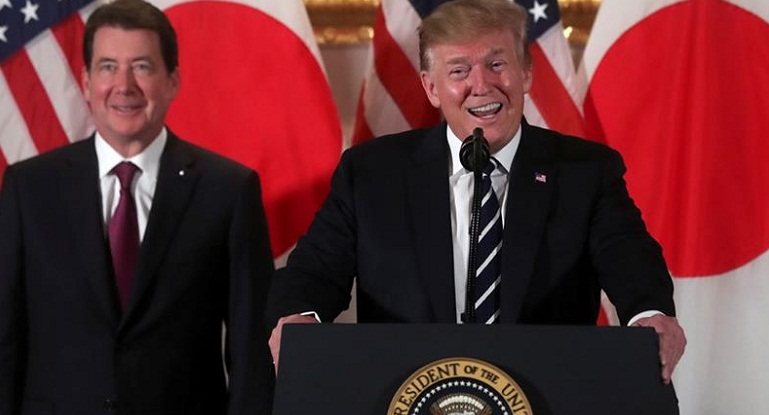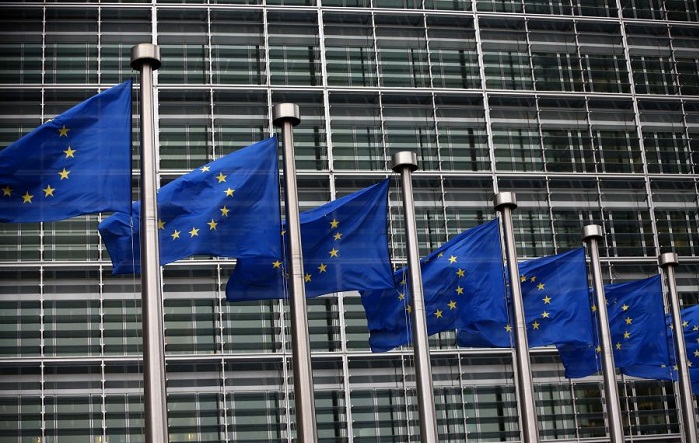No consensus on Brexit deal: UK may go for new elections: Special report
Editor Express Daily March 30, 2020 0 COMMENTS
London (Express Daily)Theresa May is spending this weekend striving to plot a way out of the UK’s Brexit stalemate after Parliament refused her deal for a third time. With in only two weeks left to the new deadline of April 12, she — and the House of Commons — are going out of options.
There may be a fourth attempt to persuade lawmakers to back her deal, but this time set against a softer version of Brexit in order to implement an affirmative decision one way or the other. But with the numbers deadlocked at this time, and little sign that May can change defeat into victory in a matter of days, the only way out of this — and one that the PM is reportedly actively considering — could be a fresh UK general election.
Two years ago, the normally cautious Prime Minister played against type by calling a snap election three years earlier than necessary. She wanted to secure a bigger mandate for her own Brexit vision — and ended up throwing away her Conservative majority.
Every parliamentary defeat on her deal since it was signed with Brussels four months ago, and the ongoing stalemate in the Commons, is due to that disastrous decision to hold an election and its hung parliament result.
To hold another one would, then, be high risk and against May’s instincts. But that doesn’t mean it isn’t highly likely to happen — according to bookies Betfair, an election before Brexit takes place is an odds-on bet.
Only option left?
Addressing the House of Commons Friday after the defeat by 344 votes to 286, the Prime Minister hinted that another election could be on the cards when she said: “I fear we are reaching the limits of this process in this House.”
The opposition Labour party, under its leader Jeremy Corbyn, have been calling for an election for months — particularly because they could be the greatest beneficiaries of the poll.
By contrast, many Conservative lawmakers are fearful of losing even more seats than in 2017 and, potentially, watching Labour become the largest party.
An election would complicate May’s planned departure as Prime Minister — which she announced last Wednesday as part of a plea bargain to win over more votes from her own MPs. Would she, for example, fight the election as Tory leader and then step down if she lost, triggering a contest to succeed her?
Conversely, does a small part of her — in conversation with her closest allies — entertain the small possibility that she could fight an election and win, finally securing the mandate she’s been craving for two years? As it stands, a Conservative leadership contest has already effectively begun, with several candidates jostling for media coverage. That contest would have to be postponed.
Seeking clarity
There is a risk, of course — to the UK and to British politics — that a 2019 election would solve nothing by ending up, once again, with no clear winner and the prospect of more deadlocked parliamentary votes. Yet there is an argument that a national poll would not only be the only way out of the current impasse, but also be in the best interests of the country.
Here’s why: At the 2017 election, Brexit played a key part in the campaign and yet the nature of the UK’s departure was still abstract. Political parties did not debate the detail of a Brexit deal, because that deal was not yet on the table. As such, the electorate was voting on much broader issues and the credibility of each party and their would-be Prime Minister.
This vagueness has led to a democratic deficit today: politicians have been taking huge liberties with both the result of the 2016 referendum (which, let’s not forget was a relatively close 52% to 48%) and the result of the 2017 election and interpreting both for their own ends — claiming that the British public wants a certain type of Brexit.
If there were an election now, each party leader and their manifestos would have to be clear about what Brexit would mean if they won power. Would it be a tweaked version of May’s deal, or a softer Brexit involving a customs union or ongoing single market access to the EU? Would they promise a second referendum on the final deal — or what is being termed a confirmatory vote?
A fresh election would give the public a say on what kind of Brexit they wanted.
Even another hung parliament result would give more clarity, depending on which party had the largest number of seats. For nearly three years since the June 2016 referendum result, UK politicians have been second guessing what’s in the minds of voters. There are clues in opinion polls, an online petition to revoke the Brexit process that now stands at nearly six million signatures, and competing marches by people in favor of a second referendum and of continuing with Brexit.
But nobody really knows for sure. An election would let voters give their verdict, and provide a mandate for a hard or soft Brexit, deal, no deal, or no Brexit at all, and allow the UK to move forward, in whichever direction the people decided.
RELATED ARTICLES
Recent Posts
- Big arrangements are made by a nervous Harris campaign to secure a close victory.
- Assault on peace: Hammas deadliest attack on israle on Oct 07 , instigated Midle East Crisis:
- Israel marked “solemn” anniversary commemorating 7/10 deadly attacks:
- Trump impeachment: Trump lashed out over his impending impeachment in an irate letter to Nancy Pelosi, accusing her of declaring “open war on American democracy”.
- hotness breaks its records in Australia :

